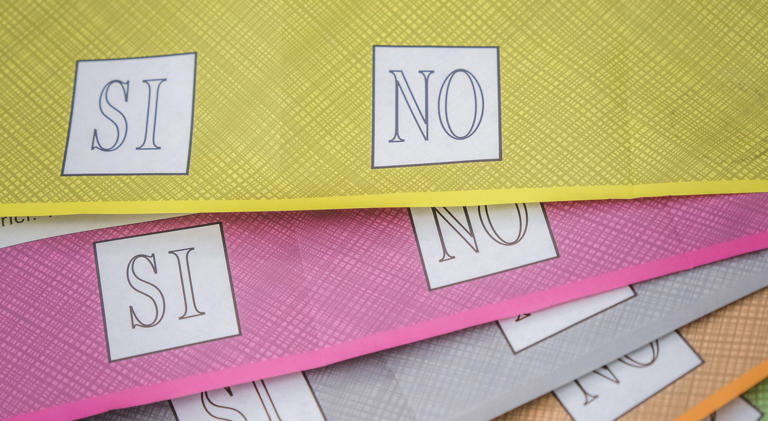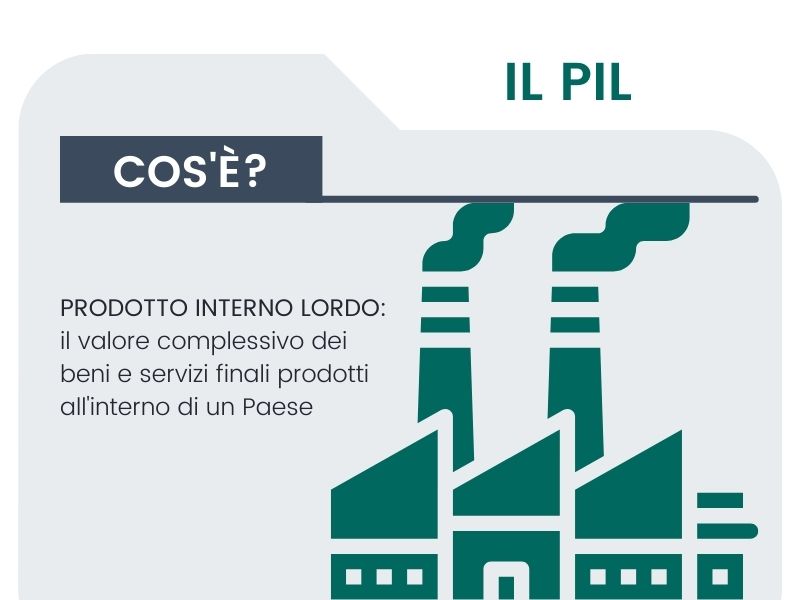
Trump’s new tariffs spark trade war with Canada and Mexico
President Trump declared an economic emergency so that he could place duties of 10% on all imports from China and 25% on imports from Mexico and Canada.
US President Donald Trump signed an order to impose stiff tariffs on imports from Mexico, Canada and China on Saturday, drawing swift retaliation and an undeniable sense of betrayal from the country’s neighbours.
The Republican president posted on social media that the tariffs were necessary “to protect Americans,” pressing the three nations to do more to curb the manufacture and export of illicit fentanyl and for Canada and Mexico to reduce illegal immigration into the US.
The tariffs, if sustained, could cause inflation to significantly worsen, threatening the trust that many voters placed in Trump to lower the prices of groceries, petrol, housing, vehicles and other goods as he promised. They also risked throwing the global economy and Trump’s political mandate into turmoil, just two weeks into his second term.
Trump declared an economic emergency in order to place duties of 10% on all imports from China and 25% on imports from Mexico and Canada. Energy imported from Canada, including oil, natural gas and electricity, would be taxed at a 10% rate.
Trump’s order includes a mechanism to escalate the rates charged by the US against retaliation by the other countries, raising the spectre of an even more severe economic disruption.
Trump posted on X Twitter
“We need to protect Americans, and it is my duty as President to ensure the safety of all. I made a promise on my Campaign to stop the flood of illegal aliens and drugs from pouring across our Borders, and Americans overwhelmingly voted in favor of it.” – Trump
Canada and Mexico retaliate
“The actions taken today by the White House split us apart instead of bringing us together,” Canadian Prime Minister Justin Trudeau said in a sombre tone as he announced that his country would put matching 25% tariffs on up to €150 billion in US imports, including alcohol and fruit.
He channelled the betrayal that many Canadians are feeling, reminding Americans that Canadian troops fought alongside them in Afghanistan and helped respond to myriad crises, from wildfires in California to Hurricane Katrina.
“We were always there standing with you, grieving with you, the American people,” he said.
Mexico’s president also ordered retaliatory tariffs.
“We categorically reject the White House’s slander that the Mexican government has alliances with criminal organisations, as well as any intention of meddling in our territory,” Mexican President Claudia Sheinbaum wrote in a post on X. She said she had instructed her economy secretary to implement a response that includes retaliatory tariffs and other measures in defence of Mexico’s interests.
“If the United States government and its agencies wanted to address the serious fentanyl consumption in their country, they could fight the sale of drugs on the streets of their major cities, which they don’t do and the laundering of money that this illegal activity generates that has done so much harm to its population.”
The premier of the Canadian province of British Columbia, David Eby, specifically called on residents to stop buying liquor from US “red” states and said it was removing American alcohol brands from government store shelves as a response to the tariffs.
Beijing to refer US to WTO
China’s Ministry of Foreign Affairs said the country’s government “firmly deplores and opposes this move and will take necessary countermeasures to defend its legitimate rights and interests.”
China began regulating fentanyl-related drugs as a class of controlled substances in 2019 and conducted “counter-narcotics cooperation with the US,” the ministry said, calling on the US government to correct what it considers wrongful actions.
The Ministry of Commerce in China said it would file a lawsuit with the World Trade Organisation for the “wrongful practices of the US” and take measures to safeguard its rights and interests.
Meanwhile, Japan’s finance minister voiced his concern on Sunday. “We’re deeply concerned about how these tariffs could affect the world’s economy,” Katsunobu Kato told Fuji TV.
The tariffs will go into effect on Tuesday, setting up a showdown in North America that could potentially sabotage economic growth. A new analysis by the Budget Lab at Yale laid out the possible damage to the US economy, saying the average household would lose the equivalent of €1,130 in income from the taxes. Economic growth would slow and inflation would worsen, and the situation could be even worse with retaliation from other countries.
Democrats were quick to warn that any inflation going forward was the result of Trump’s actions.
“You’re worried about grocery prices. Don’s raising prices with his tariffs,” Senate Democratic leader Chuck Schumer of New York wrote in a series of posts on X.
“You’re worried about tomato prices. Wait till Trump’s Mexico tariffs raise your tomato prices,” read another. “You’re worried about car prices. Wait till Trump’s Canada tariffs raise your car prices,” read another.
A senior US administration official, speaking on condition of anonymity to brief reporters, said the lower rate on energy reflected a desire to minimise disruptive increases on the price of gasoline or utilities. That’s a sign White House officials understand the gamble they’re taking on inflation. Price spikes under former President Joe Biden led to voter frustration that helped return Trump to the White House.
No exceptions
The order signed by Trump contained no mechanism for granting exceptions, the official said, a possible blow to homebuilders who rely on Canadian lumber as well as farmers, vehicle manufacturers and other industries.
The official did not provide specific benchmarks that could be met to lift the new tariffs, saying only that the best measure would be fewer Americans dying from fentanyl addiction.
The order would also allow for tariffs on Canadian imports of less than €770. Imports below that sum are currently able to cross into the United States without customs and duties.
“It doesn’t make much economic sense,’’ said William Reinsch, senior adviser at the Center for Strategic and International Studies and a former US trade official.
“Historically, most of our tariffs on raw materials have been low because we want to get cheaper materials so our manufacturers will be competitive … Now, what’s he talking about? He’s talking about tariffs on raw materials. I don’t get the economics of it.’’
With the tariffs, Trump is honouring promises that are at the core of his economic and national security philosophy. But the announcement showed his seriousness around the issue as some Trump allies had played down the threat of higher import taxes as mere negotiating tactics.
The president is preparing more import taxes in a sign that tariffs will be an ongoing part of his second term. On Friday, he mentioned imported computer chips, steel, oil and natural gas, as well as copper, pharmaceutical drugs and imports from the European Union — moves that could essentially pit the US against much of the global economy.
Trudeau warned of economic pain as the tariffs take effect and encouraged Canadians to “choose Canadian products and services rather than American ones.” But he also voiced optimism about the enduring relationship between the two countries.
“It is going to have real consequences for people, for workers on both sides of our border. We don’t want to be here. We didn’t ask for this, but we will not back down in standing up both for Canadians and for the incredible successful relationship between Canada and the United States,” Trudeau said.
US backs down on tariffs after Colombia agrees to deportation flights
The Colombian President Gustavo Petro initially refused to accept two flights carrying deported migrants, accusing Trump of not treating the returnees with “dignity”.
The US will not impose tariffs on Colombia after Bogota backed down and agreed to accept inbound flights carrying deported migrants, the White House has said.
Donald Trump had ordered 25% tariffs on all Colombian goods after the country’s President Gustavo Petro refused landing to two US military deportation flights on Sunday.
Petro initially said his country would only accept migrants from the US if they arrived on civilian planes, saying that they should not be treated “like criminals”.
However, by late Sunday, White House Press Secretary Karoline Leavitt said that Colombia had “agreed to all of President Trump’s terms, including the unrestricted acceptance of all illegal aliens from Colombia returned from the United States, including on US military aircraft, without limitation or delay.”
Following Petro’s refusal to accept the two planes, Trump ordered retaliatory measures including visa restrictions and steep tariffs on all Colombian incoming goods, which would double, after a week, to 50%.
In a social media post in which he celebrated Colombia’s culture, Petro accused Trump of not treating immigrants with “dignity” during deportation and announced a retaliatory 25% tariff on US goods.
“Your blockade does not scare me, because Colombia, besides being the country of beauty, is the heart of the world,” he said.
In response, Trump said on his Truth Social platform that his measures against Colombia were “just the beginning.”
“We will not allow the Colombian Government to violate its legal obligations with regard to the acceptance and return of the criminals they forced into the United States,” Trump wrote.
Just hours later, the Colombian government took a U-turn, with the country’s foreign ministry announcing it had “overcome the impasse.”
The White House said Colombia had agreed to accept all deportation flights without restrictions, adding that Trump’s proposed tariffs had been drafted and would still be implemented if Colombia did not honour the agreement.
Colombia’s foreign minister Luis Gilberto Murillo said the country would receive Colombian deportees and would guarantee them “decent conditions.”
He added that Petro’s presidential plane had been prepared to facilitate the return of the Colombians on the blocked US military flights.
The quarrel between the two countries comes as a warning of what could happen if a country seeks to impede Trump’s immigration plans.
On his first day in office last week, Trump signed multiple executive orders related to immigration, promising to carry out “mass deportations.”
Some of his executive orders were signed to allow Immigration and Customs Enforcement (ICE) officials to carry out arrests of illegal migrants on US soil.
Agents conducted such arrests in Chicago on Sunday, the ICE said in a statement.
Trump’s government has also been using active-duty military to help with his immigration crackdown. On Friday, two US military planes carrying migrants landed in Guatemala and a further two arrived in Honduras.
Pascal Lamy warns EU to be tough with Trump | Radio Schuman
Pascal Lamy, the former chief of staff to European Commission President Jacques Delors and former two-term head of the World Trade Organization, told Euronews how the EU should deal with Donald Trump if the American president follows up on threats to impose tariffs.
US President Donald Trump should realise that the EU is a big market and could retaliate in a tariff war, harming US exporters, Pascal Lamy told Euronews’ Shona Murray in an exclusive interview Radio Schuman features today.
The former European Commissioner for Trade and twice Director-General of the World Trade Organization (WTO), downplayed the importance of Trump’s “show” on tariffs, which the American president uses as a “Swiss knife that will allow him to do anything he wants to do”.
Radio Schuman also reports on today’s General Affairs Council meeting in Brussels and on those European regions where there are greater numbers of women working in the high-tech sector.
Radio Schuman is hosted and produced by Maïa de la Baume, with journalist and production assistant Eleonora Vasques, audio editing by David Brodheim. Music by Alexandre Jas.
Will Trump help European conservatives push back on the Green deal? | Radio Schuman
The US is set to pull out of the climate fight with Donald Trump in power. The new American president announced last week that he would withdraw from the Paris agreement and launch a national energy “emergency” that could result in suspending environmental regulations.
Today Radio Schuman looks at how US President Donald Trump policies on climate could impact on the EU with Euronews reporter Robert Hodgson.
Last week, Trump’s stance on climate and energy had ripple effects in Europe, particularly among the far-right Patriots for Europe and the centre-right European People’s Party (EPP) in the European Parliament.
Jordan Bardella of the Rassemblement National called for the EU’s Green Deal to be suspended, claiming it harms farming, the car industry, and energy policies. Meanwhile, the EPP, the largest European Parliament party, has intensified efforts to roll back key Green Deal legislation.
Polish Prime Minister Donald Tusk echoed these sentiments, urging a critical review of Green Deal laws and warning that expanding the Emission Trading System could drive up energy prices.
Radio Schuman is hosted and produced by Maïa de la Baume, with journalist and production assistant Eleonora Vasques, audio editing by Johan Breton. Music by Alexandre Jas.






